
News |
- Save Trees - Pay Bills Online
- Political Leaders Take KYOTOplus Pledge
- First Nation Leaders Jailed for Peaceful Protest
- Save Boreal Birds
- Manitoba Hog Industry - Brought To A Halt?
- New Regulations To Protect Manitoba Water
- Climate Change Report - Adaptation is Needed
- Manitoba Wildlands Now on Facebook
- Britain Bans Bottled Water
- Canada's Roadmap on Environment Launched
- Alberta Election Shows Rising Environmental Concerns
- Re-Thinking Meat and Seafood Choices
| Save Trees - Pay Bills Online | 09 April 08 |
|
Switching to electronic bills, statements, and payments, saves the average family in the US 6.6 pounds of paper per year. This equates to real environmental savings of 0.08 trees, 171 pounds of greenhouse gases, 63 gallons of wastewater, and 4.5 gallons of gasoline for mailing each year. "Even small contributions can have an impact when aggregated," said Craig Vaream, a member of the PayItGreen Alliance and JPMorgan Chase. Canadians are able to reduce paper waste through Epost - a web-based service that delivers the mail online for Canada Post, allowing Canadians to receive, review, pay and manage mail electronically. Manitoba Hydro, City of Winnipeg, and Canadian corporations including Hudson's Bay Company and Canadian Tire can be paid through Epost. Reduce junk mail by 80 percent by signing up for the Canadian Marketing Association's Do Not Contact service and calculate your own financial paper footprint on The Alliance's website at www.payitgreen.org. View March 27, 2008 Reuters article View March 18, 2008 Business Wire article View March 27, 2008 Forest Ethics article Visit PayItGreen website View March 14, 2008 Winnipeg Free Press article (DOC) View City of Winnipeg, Water and Waste Online Billing through Epost View Manitoba Hydro Online Billing through Epost View Canadian Marketing Association Do not contact list Sources: Reuters, Business Wire, Winnipeg Free Press, PayItGreen Alliance |
|
 Print version Print version |
Top |
| Political Leaders Take KYOTOplus Pledge | 03 April 08 |
 Canadian House of Commons opposition party leaders Stéphane Dion, Gilles Duceppe and Jack Layton signed a pledge April 2, 2008 to fight climate change. The KYOTOplus pledge is part of a national petition campaign launched on Parliament Hill by Canadian environmental and public interest organizations. Canadian House of Commons opposition party leaders Stéphane Dion, Gilles Duceppe and Jack Layton signed a pledge April 2, 2008 to fight climate change. The KYOTOplus pledge is part of a national petition campaign launched on Parliament Hill by Canadian environmental and public interest organizations."We have only two years to negotiate an agreement to avert a global catastrophe. Canadians want to be leaders, not laggards, in the fight against global warming," said Arthur Sandborn of Greenpeace Canada. KYOTOplus will gather the pledges of citizens and politicians who want Canada to take a leadership role on global warming - both domestically and internationally. It calls on elected Canadian politicians to "work to ensure that Canada honours its Kyoto commitment and sets a national target of cutting its greenhouse gas emissions by at least 25 per cent, relative to the 1990 level, by 2020." "The three opposition leaders are the first of what we hope will be a majority of Canadian politicians committing to doing the right thing on climate change. " said Emilie Moorhouse of Sierra Club Canada. Manitoba Wildlands is a sponsoring organization for KYOTOplus.  Take the KYOTOplus Citizen Pledge Take the KYOTOplus Citizen PledgeView the KYOTOplus Citizen Petition View Climate Action Network KYOTOplus campaign View April 2, 2008 Sierra Club Canada release View GreenPeace Canada KyotoPlus campaign Sources: Sierra Club Canada, Climate Action Network |
|
 Print version Print version |
Top |
| First Nation Leaders Jailed for Peaceful Protest | 02 April 08 |
 On March 17, 2008, an Ontario Superior Court judge sentenced six Aboriginal protesters to six months of jail for peacefully defying a court order that would allow Platinex, a mining exploration company, to drill for minerals on their traditional lands in Northern Ontario, Canada. The Kitchenuhmaykoosib Inninuwug (KI) First Nation fears mining activity will jeopardize hunting and burial grounds and argues the Ontario government awarded mineral exploration permits without consulting and accommodating their people, a violation of aboriginal rights and Canadian law. On March 17, 2008, an Ontario Superior Court judge sentenced six Aboriginal protesters to six months of jail for peacefully defying a court order that would allow Platinex, a mining exploration company, to drill for minerals on their traditional lands in Northern Ontario, Canada. The Kitchenuhmaykoosib Inninuwug (KI) First Nation fears mining activity will jeopardize hunting and burial grounds and argues the Ontario government awarded mineral exploration permits without consulting and accommodating their people, a violation of aboriginal rights and Canadian law.The individuals jailed include the Chief and four Councilors of the (KI) First Nation. One of them, a woman, is separately incarcerated at the Kenora jail. KI First Nation continues to recognize its Chief and Councilors as leaders in exile and as prisoners of conscience. It has also declared that a 2001 community declared moratorium on exploration and development will continue to be enforced in KI traditional territory. Support for the jailed protestors comes from many quarters. See links below for news coverage, resolutions in support, and other information. View March 17, 2008 Open Letter to Ontario Premier McGuinty from concerned organizations (PDF) View March 20, 2008 Open Letter to Chief Phil Fontaine from The First Nations Summit and the Union of BC Indian Chiefs View March 20, 2008 Canada NewsWire article View March 19, 2008 Prospectors and Developers of Canada press release View March 25, 2008 Globe and Mail article View March 20, 2008 Globe and Mail Opinion Editorial (PDF) View Intercontinental Cry chronology on this story Visit Kitchenuhmaykoosib Inninuwug First Nation website Source: Maquila Solidarity Network |
|
 Print version Print version |
Top |
| Save Boreal Birds | 02 April 08 |
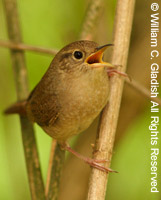 A third of Canada's Boreal regions has been allocated for oil and gas exploration, hydro, timber and mining - destroying vital breeding habitat for migratory birds. The Save Our Boreal Bird's campaign urges Canadians and government leaders to protect the Boreal, one of the world's most important ecosystems. A third of Canada's Boreal regions has been allocated for oil and gas exploration, hydro, timber and mining - destroying vital breeding habitat for migratory birds. The Save Our Boreal Bird's campaign urges Canadians and government leaders to protect the Boreal, one of the world's most important ecosystems.The boreal is a vital link in a network of breeding, staging, and wintering areas that stretch from Canada's North to South America. Less than eight percent of Canada's boreal forest regions are protected. An estimated 300 million birds originate from the boreal forest. "In Ontario alone, over 45,000 migratory birds' nests were lost in 2001 due to logging" said Jen Baker, Ontario Nature Conservation Campaign coordinator. International and Canadian environmental groups organized the campaign, including Ontario Nature, Boreal Songbird Initiative, Nature Canada, Bird Studies Canada, Bird Life International, among many others. Sign the petition to show your support for Canada's Boreal Forest, also home to some of the last remaining populations of caribou, wolves, lynx, and grizzly bears on earth. It is one of the plant's largest terrestrial stores of carbon and home to hundreds of First Nation communities who use the land to sustain a traditional way of life.  Save Our Boreal Birds - Sign Petition to Protect Boreal Save Our Boreal Birds - Sign Petition to Protect Boreal View Nature Canada: Protect the Birds of the Boreal from Runaway Development View March 27, 2008 Bird Life article Visit Boreal Songbird Initiative View March 28, 2008 Globe and Mail article View North American Native Plant Society: Save Our Boreal Birds Campaign Sources: Nature Canada, The Green Pages, Bird Life, Boreal Birds, the Globe and Mail, North American Native Plant Society |
|
 Print version Print version |
Top |
| Manitoba Hog Industry - Brought To A Halt? | 02 April 08 |
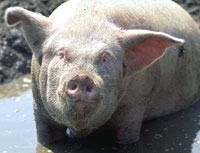 A government regulation under the Environment Act for a moratorium on new hog barns and manure storage facilities in the Red River valley, and zones identified in an earlier announcement takes effect April 2008. Permits for pig manure storage facilities; pig barns, and barn expansions are temporarily suspended until August 31, 2008. A government regulation under the Environment Act for a moratorium on new hog barns and manure storage facilities in the Red River valley, and zones identified in an earlier announcement takes effect April 2008. Permits for pig manure storage facilities; pig barns, and barn expansions are temporarily suspended until August 31, 2008. New legislation will be introduced in spring 2008. The legislation is expected to replace the interim regulation. Areas with intensive hog operations are of greatest concern because hog barns are too close together or the land is prone to widespread flooding - threatening watershed health and sensitive ecologies including wetlands. Manitoba Pork Council, Keystone Agriculture Producers and the Manitoba Chambers of Commerce seek to have the regulation reversed. Industry leaders say the moratorium will lower farm values in the affected regions and may end any opportunity to attract a new processing plant to the province. Meanwhile the hog industry in Manitoba is facing economic challenges, with a new provincial program to encourage downsizing of operations. Glen Koroluk, spokesman for the group Beyond Factory Farming, wants the provincial auditor to investigate the Clean Environment Commission research and hearings. Some critics of this decision wish to see the moratorium apply to the whole province, as it did during interim measures prior to the CEC hearings, and report. View March 25, 2008 Manitoba Livestock Manure and Mortalities Management Regulation, amendment (PDF) View December 2007 CEC report (PDF) View March 5, 2008 Manitoba Eco-Network press conference backgrounder View March 19, 2008 Farmscape press release View March 4, 2008 Winnipeg Free Press article View March 2, 2008 Canadian Press article View March 5, 2008 CBC article Visit Manitoba Wildlands section on Manitoba Water Projects Sources: Government of Manitoba, Farmscape, Winnipeg Free Press, The Canadian Press, CBC |
|
 Print version Print version |
Top |
| New Regulations To Protect Manitoba Water | 02 April 08 |
 Protection of Manitoba's waterways and the health of Lake Winnipeg will be aided by regulation of new water protection areas. Protection of Manitoba's waterways and the health of Lake Winnipeg will be aided by regulation of new water protection areas. Nutrient and fertilizer free buffer zones will be established along every waterway. Water Stewardship Minister Christine Melnick announced buffer zones will be a minimum of 3 meters, 15 meters along drinking water sources including Red and Assiniboine Rivers. Thirty-meter buffer zones will be established around Lake Winnipeg and other vulnerable lakes. "Along with livestock and grain producers, other Manitobans such as cottagers and golf course owners will have clear regulations to guide how nutrients can be applied to land in order to better protect water quality," said Melnick. Algae blooms, high E. coli counts and other problems in Lake Winnipeg forced the government to establish rules, which will take effect January 2009. Further restrictions on lawn fertilizers will be announced later in spring 2008. This is the latest in a series of steps to protect water quality, including banning new or expanded hog barns in much of central and eastern Manitoba, and banning winter spreading of manure by 2013. View March 18, 2008 Manitoba Government press release View March 18, 2008 Canadian Press article Visit Manitoba Water Stewardship Sources: Government of Manitoba, Canadian Press, Winnipeg Sun |
|
 Print version Print version |
Top |
| Climate Change Report - Adaptation is Needed | 26 March 08 |
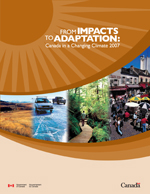 With much delay, Natural Resources Canada quietly released From Impacts to Adaptation: Canada in a Changing Climate 2007. Years of research and input from more than 140 experts reveals Canada's vulnerability to climate change. With much delay, Natural Resources Canada quietly released From Impacts to Adaptation: Canada in a Changing Climate 2007. Years of research and input from more than 140 experts reveals Canada's vulnerability to climate change. "This report is yet another wake up call for a government that has not produced a meaningful climate change plan or passed any legislation to protect Canadians from global warming," said Graham Saul, Climate Action Network Canada. The report addresses the impacts of greenhouse gas pollution, region by region and suggests how Canada must adjust decisions, activities and thinking accordingly. Across Canada, climate change will greatly affect infrastructure, the quantity and quality of drinking water, and industries relying on water - oil, gas, mining, and hydroelectricity. Adaptation must address a future of extreme climatic events and water scarcity. Agriculture sectors and the livelihood of Aboriginal peoples are at great risk. Warmer seasonal temperatures restrict remote access by winter roads and have economic impacts on winter forestry and energy operations. Contents of the report were leaked to CBC by interviews with key authors. Critics are questioning Natural Resources Canada motives for silently posting the report on the government website after spending nearly $50,000 on its anticipated release. View NRCAN report, From Impacts to Adaptation: Canada in a Changing Climate 2007 (PDF) View March 7, 2008 CBC article View March 10, 2008 Climate Action Network article View March 12, 2008 Canadian Press article View March 13, 2008 Green Living Online article View March 13, 2008 Globe and Mail article View March 14, 2008 National Post article Sources: Natural Resources Canada, CBC, Climate Action Network, National Post, Globe and Mail, Canadian Press, Green Living Online |
|
 Print version Print version |
Top |
| Manitoba Wildlands Now on Facebook | 26 March 08 |
 Manitoba Wildlands has launched its Facebook page. We aim to make our web sites and blogs available to social networking members who are concerned about the environment, the boreal, and climate change - all urgent issues today. Our Facebook page contains local Manitoba news, issues, links, events, and photos (coming soon) selected from our many websites and services. Manitoba Wildlands has launched its Facebook page. We aim to make our web sites and blogs available to social networking members who are concerned about the environment, the boreal, and climate change - all urgent issues today. Our Facebook page contains local Manitoba news, issues, links, events, and photos (coming soon) selected from our many websites and services.We are asking our audiences and visitors to check out the new page, become a fan, let your networks know, and send us suggestions for Facebook or web site content. Visit Manitoba Wildlands on Facebook Source: Manitoba Wildlands |
|
 Print version Print version |
Top |
| Britain Bans Bottled Water | 26 March 08 |
 The British government is setting an environmental precedent by banning bottled water from all government offices, meetings, and other official business. The British government is setting an environmental precedent by banning bottled water from all government offices, meetings, and other official business. The Department for Environment, along with four other departments, has already stopped offering bottled water. "The government is committed to sustainable operations across its estate and I have made this issue one of my key priorities for the civil service," said a statement from Cabinet Secretary Gus O'Donnell. Environmental groups are applauding government action as tap water uses 300 times less energy to create and distribute than bottled water and produces much less waste. Green groups in London are encouraging restaurants and customers to ask for tap water to help reduced the heavy carbon footprint of bottled water. Environment Minister Phil Woolas said "it borders on morally being unacceptable" for Britons to spend so much on bottled water with worldwide water shortages, and while clean drinking water is readily available. View March 6, 2008 UK Yahoo News article View March 7, 2008 National Post article View March 6, 2008 Associated Free Press article Sources: UK News, National Post, Associated Free Press |
|
 Print version Print version |
Top |
| Canada's Roadmap on Environment Launched | 18 March 08 |
 Concerned about lack of political leadership on urgent issues such as climate change, Canada's leading environmental organizations have come to a precedent setting consensus around a roadmap for action, entitled Tomorrow Today: How Canada can make a world of difference. Concerned about lack of political leadership on urgent issues such as climate change, Canada's leading environmental organizations have come to a precedent setting consensus around a roadmap for action, entitled Tomorrow Today: How Canada can make a world of difference. The groups' recommendations centre on climate change, energy use, food production, toxic substances, water, forests and oceans. The report sets out five principles to shape federal laws and policies:
The Tomorrow Today roadmap reflects best thinking of people who make it their job to understand how we can live in greater harmony with the Earth. It recognizes economic well-being is not at odds with protecting our environment, but dependent on efforts to safeguard our natural advantages and ensure a stable climate. View March 7, 2008 Canadian national conservation organizations press release View March 2008 report, Tomorrow Today: How Canada Can Make a World of Difference Visit Tomorrow/Today website Source: tomorrowtodaycanada.ca |
|
 Print version Print version |
Top |
| Alberta Election Shows Rising Environmental Concerns | 18 March 08 |
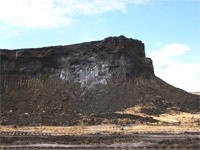 Despite concerns over rapid oil sands development Albertans re-elected the PCs for the 11th consecutive majority government since 1971 on March 3, 2008. Despite concerns over rapid oil sands development Albertans re-elected the PCs for the 11th consecutive majority government since 1971 on March 3, 2008.Progressive Conservative leader Ed Stelmach made it clear he does not want to slow oil sands development. Booming oil sands development is driving growth of the Alberta economy, resulting in health care shortages, crowded schools, lack of affordable housing, aging infrastructure, and concerns environmental with massive oil sands developments. A pre-election poll released by Cambridge Strategies Inc indicated ecologically responsible and sustainable development are more important to Albertans than expanding growth or accelerating oil sands production. The poll suggested Albertan's top concerns are greenhouse gas emissions, wildlife habitat and water usage. In a separate questionnaire sent to election candidates by Pembina Institute showed candidates from all five main political parties believe the government should control and slow growth in oil sands development. Stelmach is under pressure from a joint industry-government group to freeze lease sales in the Athabasca oil sands region until 2011. At that time the government is expected to introduce new measures to protect air, water and soil quality. View The Oil Sands Survey: Albertan's Values Regarding Oil Sands Development, Cambridge Strategies (PDF) View January 28, 2008 Globe and Mail article (PDF) View Oil Sands Watch Polling Alberta's Politicians on Oil Sands: Results of the Alberta 2008 Election All-Candidate Oil Sands Survey (PDF) View March 3, 2008 CBC article View March 4, 2008 Platts article View January 25, 2008 CanWest News article View February 26, 2008 Canadian Press article Sources: Policy Channel, Globe and Mail, Oil Sands Watch, CBC |
|
 Print version Print version |
Top |
| Re-Thinking Meat and Seafood Choices | 18 March 08 |
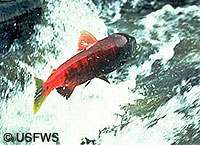 As world production and consumption of meat and seafood continue to grow, society is taking a closer look at the environmental and health impacts of what we eat, according to the World Watch Institute. As world production and consumption of meat and seafood continue to grow, society is taking a closer look at the environmental and health impacts of what we eat, according to the World Watch Institute.In 2006 farmers produced four times as much meat as in 1961. The fishing industry harvested eight times as much as in 1950. Huge confined animal feeding operations consume enormous amounts of energy, pollute water supplies, generate significant greenhouse gases and require ever-increasing amounts of corn, soy and other grains; a dependency that creates pressure to clear forested land. Dumping polluted wastewater into our oceans is creating problems for human heath, resulting in tuna, farmed salmon, swordfish, marlin and oysters (among others) being found to contain contaminants like mercury, cadmium and PCBs. Re-thinking how fish and meat are produced will mean higher prices, and consumers in industrial countries will eat less of these products. Eating less fish and meat now is an investment in the future; saving family farm;, improving rangeland; reducing water pollution; and preserving increasingly scarce fish stocks. View Worldwatch Institute's 2008 State of the World chapter 5: Meat and Seafood: The Global Diet's Most Costly Ingredients (PDF) View January 27, 2008 New York Times article View February 16, 2008 New York Times article View Greenpeace USA information on over fishing View David Suzuki Foundation pages on sustainable seafood issues and choices View February 29, 2008 The Student Life article Sources: Worldwatch Institute, Greenpeace USA, David Suzuki Foundation, New York Times |
|
 Print version Print version |
Top |


 RSS Feeds:
RSS Feeds: